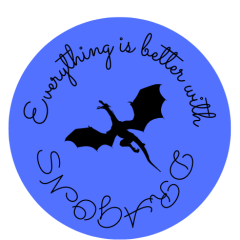
Published September 22nd 2020
by Douglas McIntyre
ISBN:1771622466 (ISBN13: 9781771622462)
Sarah Kurchak is autistic. She hasn’t let that get in the way of pursuing her dream to become a writer, or to find love, but she has let it get in the way of being in the same room with someone chewing food loudly, and of cleaning her bathroom sink. In I Overcame My Autism and All I Got Was This Lousy Anxiety Disorder, Kurchak examines the Byzantine steps she took to become “an autistic success story,” how the process almost ruined her life and how she is now trying to recover.
Growing up undiagnosed in small-town Ontario in the eighties and nineties, Kurchak realized early that she was somehow different from her peers. She discovered an effective strategy to fend off bullying: she consciously altered nearly everything about herself—from her personality to her body language. She forced herself to wear the denim jeans that felt like being enclosed in a sandpaper iron maiden. Every day, she dragged herself through the door with an elevated pulse and a churning stomach, nearly crumbling under the effort of the performance. By the time she was finally diagnosed with autism at twenty-seven, she struggled with depression and anxiety largely caused by the same strategy she had mastered precisely. She came to wonder, were all those years of intensely pretending to be someone else really worth it?
Tackling everything from autism parenting culture to love, sex, alcohol, obsessions and professional pillow fighting, Kurchak’s enlightening memoir challenges stereotypes and preconceptions about autism and considers what might really make the lives of autistic people healthier, happier and more fulfilling.
My Review
I have been reading this book on and off for ten days. It shouldn’t have taken me so long, but I had to take a break between chapters. Kurchak’s writing is fabulous, funny and moving, but I cried an awful lot. I cried because I found so many parallels between my life and Kurchak’s. We both grew up wanting to be writers, but were diverted into ‘proper jobs’ that made us ill, we both had an awful time at school, we both feel absolutely beholden to those who love us and feel that we can never pay them back, we both had a major mental health event before we got help and a diagnosis.
The differences include that Kurchak actually has a successful writing career, a stable relationship, her parents tried to protect her from the world and other peoples’ judgements, and she has more than two friends.
Kurchak is a funny writer, she makes points that are clear and illustrated by life events, and is well-aware that there will always be people who will consider her ‘not autistic enough’ no matter what she says or writes. Kurchak had the best possible chances, considering she was diagnosed as an adult, and yet still struggles every day. She makes it clear that wanting the world to be less cruel to autistic people is not too much to ask; that wanting the next generation to not suffer as we have, as all those who have gone before have, because we are wired differently.
This book is a must read for those who want to find fellowship with other autistic people, and for people who think Rain Man is an accurate portrayal of autistic life.

2 Comments